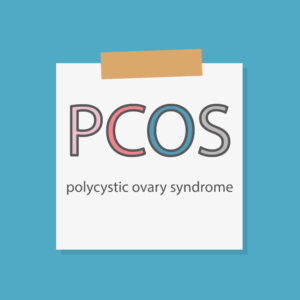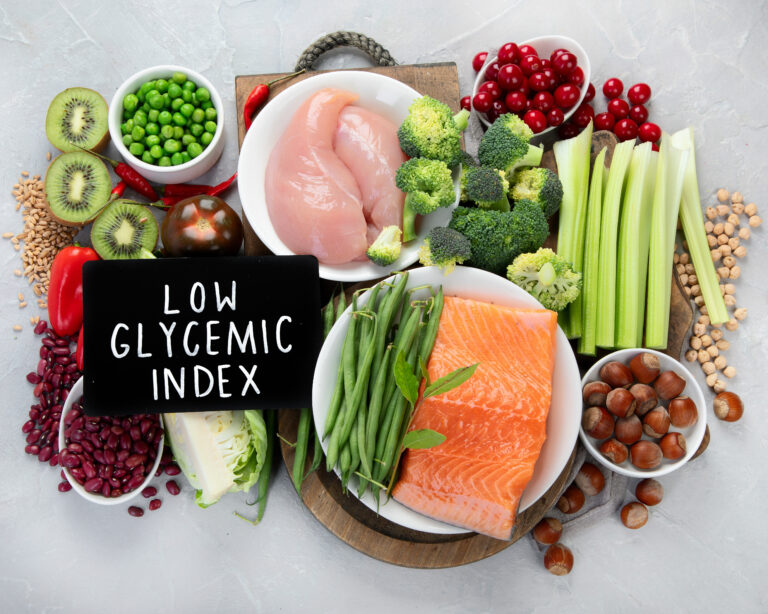What is PCOS?
Polycystic Ovary Syndrome, commonly known as PCOS, is a complex and often misunderstood hormonal disorder that can significantly impact physical and emotional well-being. In this blog post, we’ll explore what PCOS is, its symptoms, potential causes, and how to manage it effectively.

Common Symptoms of PCOS
PCOS can manifest in a variety of ways, and its symptoms can vary from person to person. Common symptoms of PCOS include:
Irregular Menstrual Cycles: PCOS often leads to irregular or absent menstrual periods, making it difficult to predict when ovulation occurs.
Ovulation Issues: PCOS can disrupt ovulation, making it difficult to conceive. Infertility is a concern for many individuals with PCOS.
Excess Androgen Production: Androgens are male hormones that females also produce. In PCOS, the ovaries may produce too many androgens, leading to symptoms such as acne and hirsutism (excessive hair growth on the face and body).
Polycystic Ovaries: As the name suggests, PCOS often causes the ovaries to develop multiple small cysts, which can be seen on an ultrasound.
Weight Gain: Many individuals with PCOS struggle with weight gain or obesity. This can exacerbate hormone imbalances and increase the risk of other health issues.
Not everyone gets every symptom, which is why PCOS can be difficult to diagnose.

Potential Causes of PCOS
Genetics: PCOS tends to run in families, suggesting a genetic component.
Insulin Resistance: PCOS is an insulin resistance syndrome. This means that your body is ignoring the insulin it normally produces. When this happens, your body produces more and more insulin, leading to high overall insulin levels.
Diagnosing PCOS
If you suspect you have PCOS or are experiencing symptoms, it’s essential to consult your GP or a fertility clinic if you’re trying to conceive. A diagnosis typically involves a thorough medical history, physical examination, and specific tests, including blood work and ultrasound imaging to evaluate the ovaries.
Managing PCOS
While there is no cure for PCOS, it can be managed effectively with the following strategies:
Lifestyle Changes: Maintaining a healthy weight through diet and exercise can help regulate menstrual cycles and reduce symptoms.
Medications: Hormonal birth control can regulate periods and reduce androgen levels. Other medications may be prescribed to improve insulin sensitivity.
Fertility Treatment: If infertility is a concern, fertility treatments like ovulation induction may be recommended.
Diet: A low Glycaemic Index (GI) diet will assist in keeping insulin levels low. It does this by keeping blood sugar as stable as possible.
It is recommended to have a BMI between 18.5 – 25 and an overall low GI, balanced diet.
Exercise improves insulin sensitivity, and a regular exercise routine is recommended regardless of BMI.
Emotional Support: PCOS can have a significant emotional impact. Support from friends, family, or a therapist can be invaluable.

Checklist for diet with PCOS:
Regular mealtimes – helps insulin response, hunger, and nutrient availability
- Low sugar – avoid added sugar & high-sugar foods like sweets, cakes, biscuits, and fizzy drinks
- Low calorie – small portions, low fat, avoid alcohol
- Moderate amounts of low GI carbohydrate
- Moderate protein
- High fibre – include lots of vegetables, choose wholegrains, include seeds & legumes (beans & lentils)
- High nutrient density – include foods like nuts, oily fish, olives, avocado & fortified dairy foods
- Take a supplement of at least 10mcg Vitamin D3 and 400mcg Folic Acid daily. Your doctor or dietitian may recommend higher amounts depending on your individual situation.
For more information: Polycystic Ovarian Syndrome and Diet information leaflet.
Nutrition advice works best when tailored to the person, their symptoms, blood results and lifestyle. Dietary change will always be complemented by exercise.
If you would like more information or advice from a registered dietitian who specialises in PCOS, please visit our partner dietitian’s website Orla Walsh Nutrition – Ireland’s Leading Dietitian and Nutrition Centre or email info@orlawalshnutrition.ie.
In Conclusion
PCOS is a complex condition that affects many aspects of a person’s life. While there is no one-size-fits-all approach to managing PCOS, lifestyle changes, medication, and emotional support can help individuals lead healthier, happier lives. If you suspect you have PCOS or are struggling with its symptoms, consult a healthcare professional for diagnosis and guidance on managing the condition.
Remember, you are not alone, and there are resources and support available to help you navigate PCOS effectively.
